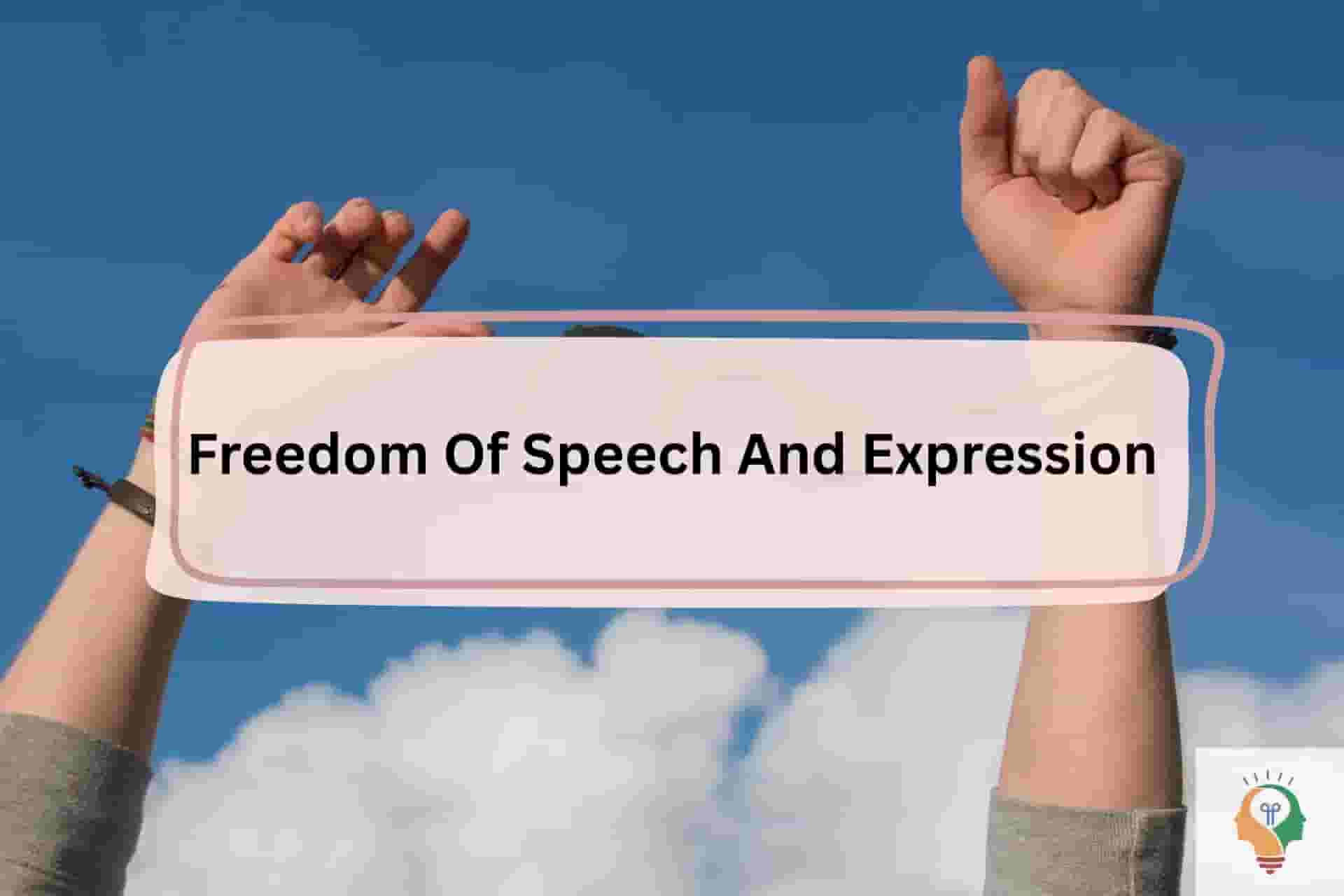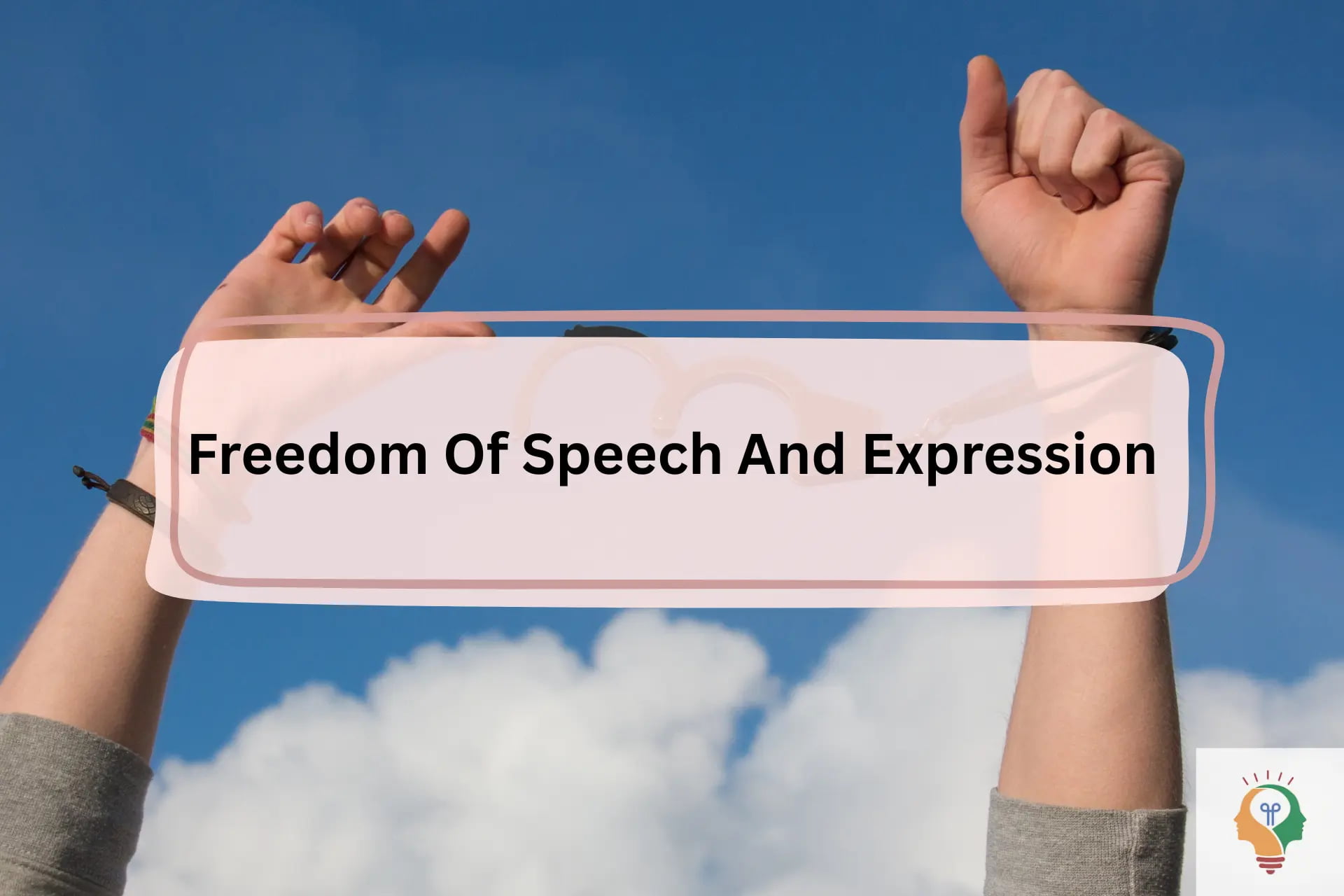Freedom Of Speech And Expression: Tracing The Origins Of Expressional Liberties
Updated: 13-10-2025 at 4:49 AM
1k


Freedom of speech and expression forms the basis of most communication that takes place between individuals and also the communicative activities such as different forms of media. This fundamental right is guaranteed to all citizens of India by virtue of Article 19 (1) of the Constitution of India.
This constitutional provision is the essence of free speech and promotes public discourse, speech and expression by imparting the ability to think and speak freely to all its subjects. Through this article, Indians can obtain information through various sources and give their own views about it. However, there are minor intricacies involved with this Article of the Constitution of India. Let us read about it in detail.
What Is Section 19(1) of the Constitution of India?
Article 19(1) of the Constitution of India, is a fundamental right which is guaranteed to all Indian citizens and provides them with freedom of speech and expression. The article implies that Indian citizens have the right to speak their minds freely and express their opinions through different forms of liberty.
Article 19(1) of the Constitution finds its foundation in the Preamble of the Constitution, wherein it was solemnly resolved by the Constituent Assembly that the Constitution will secure freedom of speech and expression for all its citizens.
Read More: World Day Against Child Labour
Which Aspects Are Covered By Article 19(1) Of The Constitution Of India?
The Constitution of India, through its fundamental rights, guarantees and safeguards different aspects of lives and activities in India. Some of the aspects that are covered by Article 19(1), which secures the right to freedom of speech and expression are:
-
Freedom of Press: The press/media is given the liberty to publish news, facts and opinions without any restrictions. Freedom of the press is an essential indicator of the individual liberties of the citizens as well as non-state actors in a country.
-
Freedom of Commercial Speech: Any commercial speech or speech related to trade, business, transaction or commerce can be delivered freely. No citizen is restricted from engaging in a commercial discourse.
-
Right to Broadcast: Broadcasting of media, such as movies, films, documentaries, podcasts or others is secured by Article 19(1) of the Constitution. This way, the freedom of expression of the creators as well as viewers is secured. In Romesh Thappar v. State of Madras (1950), the Supreme Court (SC) observed that freedom of the press lays at the foundation of all democratic organisations.
-
Right to Information: The right to information is in itself a whole right which is guaranteed to the people of India. Through this, they can seek various information from government bodies and institutions regarding their work.
-
Right to Criticise: The right to criticise is very essential as many scholars use it to criticise the government or other authorities. It is not just limited to criticism of the government, but anyone and everyone.
-
Right to expression beyond national boundaries: The right to expression under Article 19(1) is not restricted to boundaries within India. Indian subjects can express their views worldwide through platforms that allow. In Maneka Gandhi vs Union of India (1978), the SC held that the freedom of speech and expression is not confined to National boundaries.
-
Right to silence: The right to remain silent is a fundamental right that entitles Indian citizens to stay silent when they want to. It might not impact ordinary lives, however, it plays a crucial role in the lives of people being investigated by state agencies. In Bijoe Emmanuel v. State of Kerala (1986), the Supreme Court held that the right to speak includes the right to be silent or to utter no words.
These different aspects of the Right to Freedom of Speech and Expression make India a liberal country to live in and experience individualistic or personal liberties.
Read More: Must Know Changes Brought In By BNS In 2024, Law Replacing IPC
What Are The Essential Elements Of Right To Freedom Of Speech And Expression Under Article 19(1)?
While the right to freedom of speech and expression is an enticing and lucrative right which helps maintain liberty, it has been intricately designed by the Constitution makers to avoid any misuse of this Article. Let us look at some key things that must be kept in mind!
-
Article 19(1) is a fundamental right under Part IV of the Constitution of India. This implies that these rights are enforceable only against State entities. A breach of fundamental rights can only be claimed against the state and not private entities. If a state entity denies any of the rights stated above, you can hold them accountable in the courts of law as per Article 12 of the Constitution of India.
-
Article 19(2) of the Constitution of India imposes certain reasonable restrictions on the use of liberties guaranteed by Article 19(1). This way any malicious speech or expression which can threaten the sovereignty and integrity of India, the security of the State, friendly relations with foreign States, public order, decency or morality or contempt of court, defamation or incitement to an offence is restricted.
For instance, In Abbas v. Union of India (1970): The SC made it clear that censorship of films including pre-censorship was constitutionally valid in India as it was a reasonable restriction imposed on Article 19(1)(a) of COI.
Also Read: “Get a Discount After Voting | Rewarding Civic Participation”.
What Is The Importance Of Article 19(1) Of The Constitution Of India?
Article 19(1) has a multi faceted importance for both India, and Indian citizens. Let us look at what makes this Article so significant!
-
Social Development: A society can only develop when ideas and views in it are free flowing and unrestricted. This helps a society in growing.
-
Self-development: Free speech and expression helps an individual develop their own self and also boosts empowerment.
-
Democratic value: The liberty of speech and expression reflects the democratic values of a nation and also shows that the rights and liberties of citizens are a priority.
-
Pluralism: The liberty of expressing oneself is very important for ensuring that diversity is validated. Especially in a country like India where there are different types of communities, this aspect becomes very important.
How To Get A Remedy For Breach Of Article 19(1)?
If you want to report a breach of right done by any State Authority due to any reason, you can visit your lawyer and discuss it with them. You can ordinarily file a Writ Petition under Article 226 of the Constitution of India in the High Court to claim remedies and hold the authorities accountable.
However, you must seek expert opinion and consult your lawyer.
Read More: New Criminal Laws 2024: Taking Off Colonial ‘Touch’
Conclusion
Freedom of speech and expression is a right that must be given to all human beings as this way, they can think and speak freely. However, one must always be mindful of the reasonable restrictions that have been imposed on the exercise of such rights.
For more information regarding these provisions, you can access the Constitution of India in different languages.
For more knowledge like this, connect to Jaagruk Bharat now and interact with us through our Community Page.
Frequently Asked Questions
0
0
1k
0
0
1k Views
0
No comments available





Our Company
Home
About
T&C
Privacy Policy
Eula
Disclaimer Policy
Code of Ethics
Contact Us
Careers
Cancellation & Refund Policy
Categories
Women
Insurance
Finance
Tax
Travel
Transport & Infrastructure
Food
Entertainment
Communication
Government ID Cards
E-commerce
Traffic guidelines
Miscellaneous
Housing and Sanitation
Sports
Startup
Environment and Safety
Education
Agriculture
Social cause
Employment
Disclaimer: Jaagruk Bharat is a private organization offering support for documentation and government scheme access. We are not affiliated with any government body. Official services are available on respective government portals. Our goal is to make processes easier and more accessible for citizens.
All Copyrights are reserved by Jaagruk Bharat